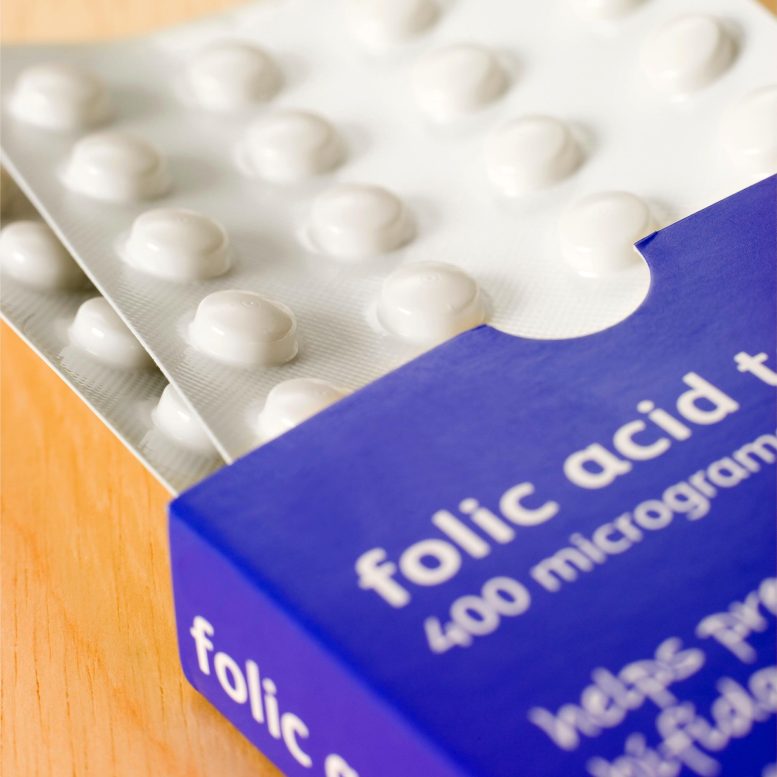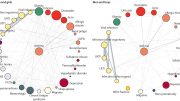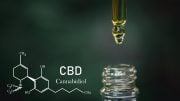
A new study, published in JAMA Psychiatry, found that patients who filled prescriptions for folic acid, also known as vitamin B9, experienced a 44% reduction in suicidal events.
Study finds folic acid treatment is associated with decreased risk of suicide attempts
The common, inexpensive supplement was linked with a 44% reduction in suicide attempts and self-harm.
With nearly 46,000 people in America dying by suicide in 2020, it is one of the leading causes of death in the US. To decrease the risk of suicide, experts recommend many strategies and treatments including psychotherapy, economic support, peer support, and medications such as antidepressants. Few if any would be likely to put folic acid supplements on that list. However, an eye-opening study recent conducted at the University of Chicago may change that.
According to the CDC, an estimated 12.2 million American adults seriously thought about suicide in 2020. Of those, 3.2 million made a plan and 1.2 million attempted suicide. Suicide rates in 2020 were 30% higher than in 2000.
The study, published on September 28th in JAMA Psychiatry, used data from the health insurance claims of 866,586 patients. It investigated the relationship between folic acid treatment and suicide attempts over a two-year period. They found that patients who filled prescriptions for folic acid, also known as vitamin B9, experienced a 44% reduction in suicidal events (suicide attempts and intentional self-harm). Robert Gibbons, PhD, the lead author of the study, is hopeful that these findings could improve suicide prevention efforts, especially because of how accessible folic acid is. He is the Blum-Riese Professor of Biostatistics and Medicine at the University of Chicago.
“There are no real side effects, it doesn’t cost a lot of money, you can get it without a prescription,” Gibbons said. “This could potentially save tens of thousands of lives.”
Gibbons initially became interested in folic acid in the context of suicide because of a previous study in which his group examined relationships between risk of attempting suicide and 922 different prescribed drugs. The study simultaneously screened each drug for associations with increases and decreases in suicide attempts. Surprisingly, folic acid was associated with a decreased risk of suicide attempt, along with drugs expected to be associated with risk of suicide, including antidepressants, anxiolytics, and antipsychotics.
“This could potentially save tens of thousands of lives.”
— Robert Gibbons, PhD
One of the challenges of this earlier study was to analyze the effects of many drugs in a large-scale data set, which is difficult. Many people take more than one drug, and drugs can have different effects when taken together than when taken alone. It can also be difficult to get meaningful results from studies like these that look for relationships in large data sets because of confounding factors, which can cause two variables in a study, like suicide and a drug, to seem to have a direct causal relationship with each other. Sometimes, these are actually both related to a confounding factor, such as socioeconomic status or health-conscious attitudes, or because they are prescribed for a condition that is associated with suicide (e.g. depression). But Gibbons and his group were able to partially eliminate these complications by comparing subjects to themselves before and after being prescribed a drug, instead of comparing subjects who did and did not take the drug to one another.
Folate is a B vitamin that helps your body make healthy new cells. It is naturally present in many foods, including vegetables, fruits and fruit juices, beef liver, nuts, and beans and peas. You also get folate by eating foods fortified with folic acid or taking a folic acid supplement.
In fact, they initially thought folic acid had only shown up in their study because of a simple explanation, but that turned out not to be the case. “When we first saw this result, we thought it was pregnancy. Pregnant women take folic acid, and pregnant women tend to have a low suicide rate, so it’s just a false association. So, we just did a quick analysis to restrict it to men. But we saw exactly the same effect in men,” Gibbons said.
To investigate and further confirm the relationship between folic acid and suicide risk, Gibbons and his co-authors did this new study and focused specifically on folic acid, and accounted for many possible confounding factors, including age, sex, mental health diagnoses, other central nervous system drugs, conditions that affect folic acid metabolism, and more. Even after adjusting for all these factors, filling a prescription for folic acid was still associated with a decreased risk of attempting suicide.
They even found that the longer a person took folic acid, the lower their risk of suicide attempt tended to be. Each month of being prescribed folic acid was associated with an additional 5% decrease in risk of suicide attempt during the 24-month follow-up period of their study.
It also occurred to the authors that maybe people who take vitamin supplements, in general, want to improve their health and would thus be less likely to attempt suicide. To address this possibility, they did a similar analysis with another supplement, vitamin B12, as a negative control. But unlike folic acid, there didn’t seem to be any relationship between vitamin B12 and risk of suicide.
Although Gibbons and his co-authors were careful to adjust for confounding factors, they cannot yet say for sure whether the relationship between folic acid and suicidal events is causal; that is, they don’t yet know if taking folic acid will directly cause a person’s risk of suicide to become lower. To know for sure, the authors are following up this study with a large-scale randomized controlled trial (RCT) to test whether folic acid directly lowers the risk of suicidal events, including ideation, attempts, and completion. This will involve randomly splitting subjects into two groups, giving a placebo to one group and folic acid to the other and comparing the rate of suicidal events over time.
If their results are confirmed in the new research, folic acid would be a safe, inexpensive, and widely available suicide prevention strategy. Best of all, it has the potential to help save thousands of lives.
Reference: “Association Between Folic Acid Prescription Fills and Suicide Attempts and Intentional Self-harm Among Privately Insured US Adults” by Robert D. Gibbons, PhD; Kwan Hur, PhD; Jill E. Lavigne, PhD and J. John Mann, MD, 28 September 2022, JAMA Psychiatry.
DOI: 10.1001/jamapsychiatry.2022.2990
Contact the 988 Suicide and Crisis Lifeline if you are experiencing mental health-related distress or are worried about a loved one who may need crisis support. Call or text 988. Chat at 988lifeline.org.









My daughter has an MTHFR mutation. It is a failure in the methylation cycle that does not allow Folic Acid to break down and be used properly to help mood stabilization. She takes a broken down form of it and would love to see more of this information. So many young people have such horrible depression and anxiety and know nothing about this mutation. They actually discovered it by accident only in the last 10 to 15 years and can trace it back to the modification of wheat. Very interesting information that needs to get out to the gen pop!
A lot of problems can be cured, but our lifestyle prevents us from curing diseases.
You should try the following
1. Distilled Water, 2. Lugols Iodine, 3. Lithium supplements. remove the space after dot ly
bit. ly/3VOCV4r
What is the dose of folic acid needed to lower suicide and self-harm? This research is wonderful news but people need to know the dosage. That should have been part of the article. Also, is the dosage above what a person gets in a multivitamin?
Colleen Youngblood what do you mean by your daughter uses a broken down version? Thanks
Men who are trying to have child with their spouses are also getting prescriptions for folic acid. Their optimism and good moods may be elevated for the same reason as the women. This study is aired on local tv news programs. This may lead people who are depressed to not seek help and medication.
Wow, reading about this study was eye-opening for me. I’ve been taking vitamin B-Complex for some time now, and I’ve noticed a huge change in my mental health. I had no idea it could actually be linked to reducing self-harm by such a significant percentage. It’s amazing how something as simple as a supplement could potentially make a big difference in saving lives. I’ll definitely continue taking my B-Complex knowing it might be helping more than just me.